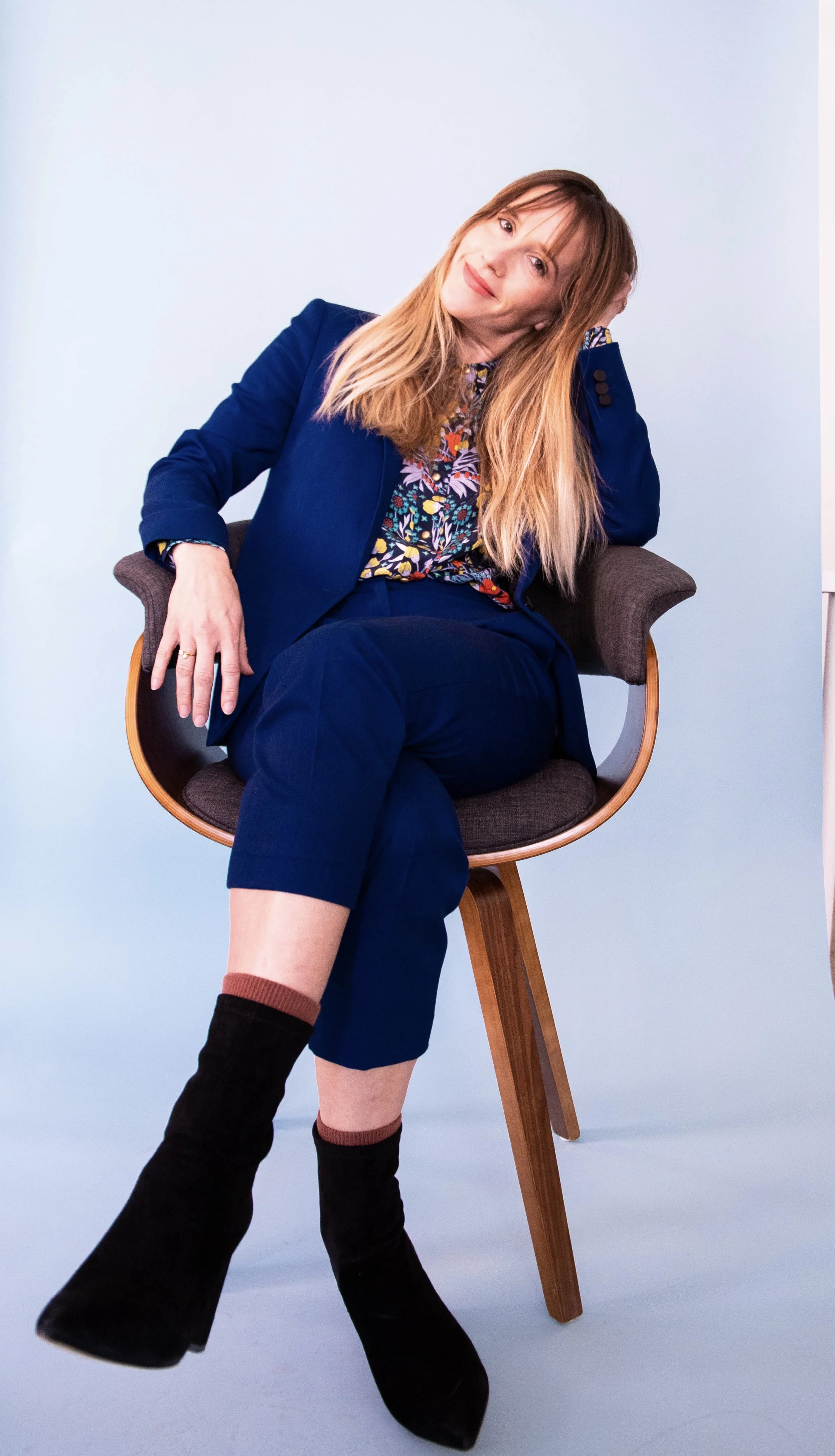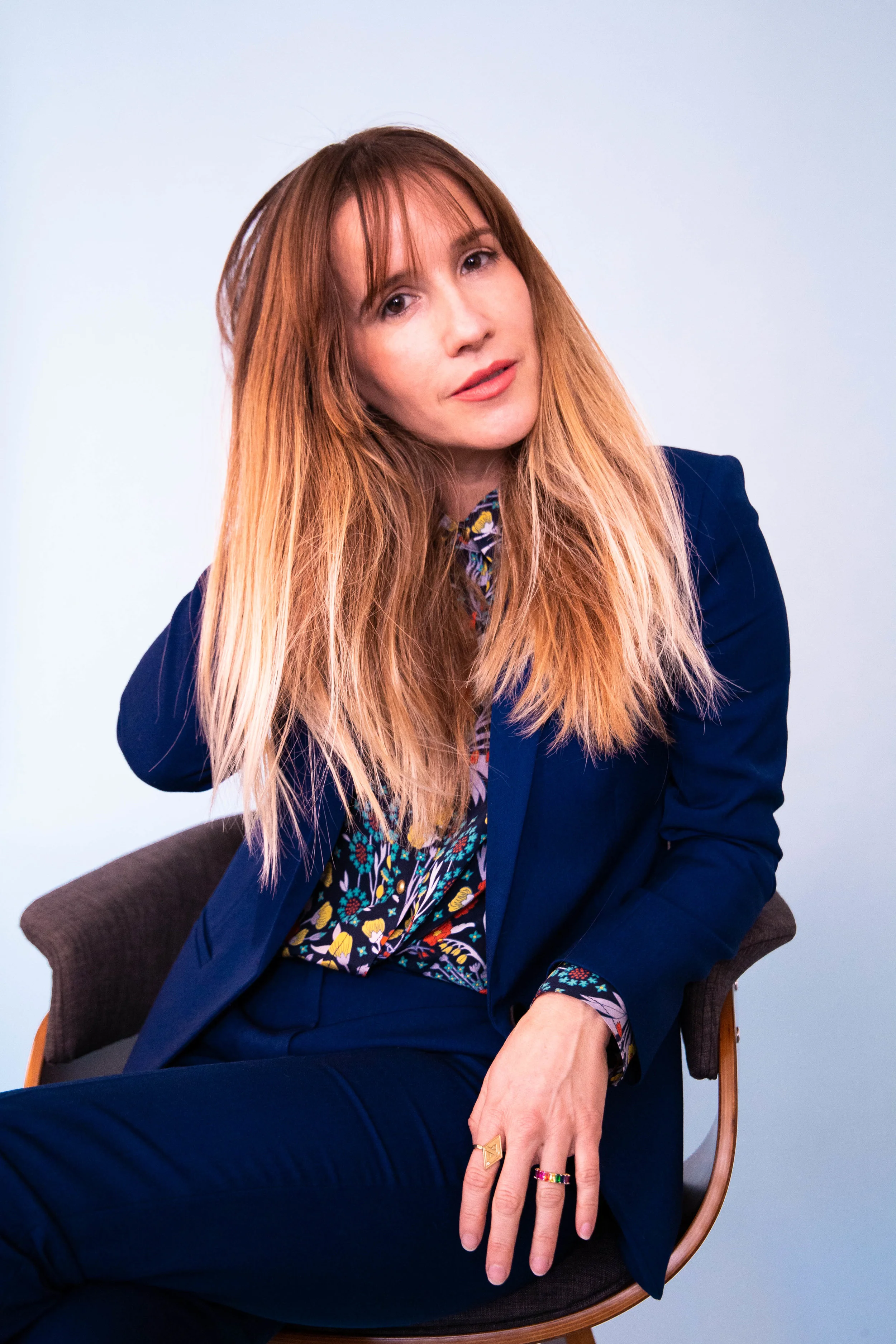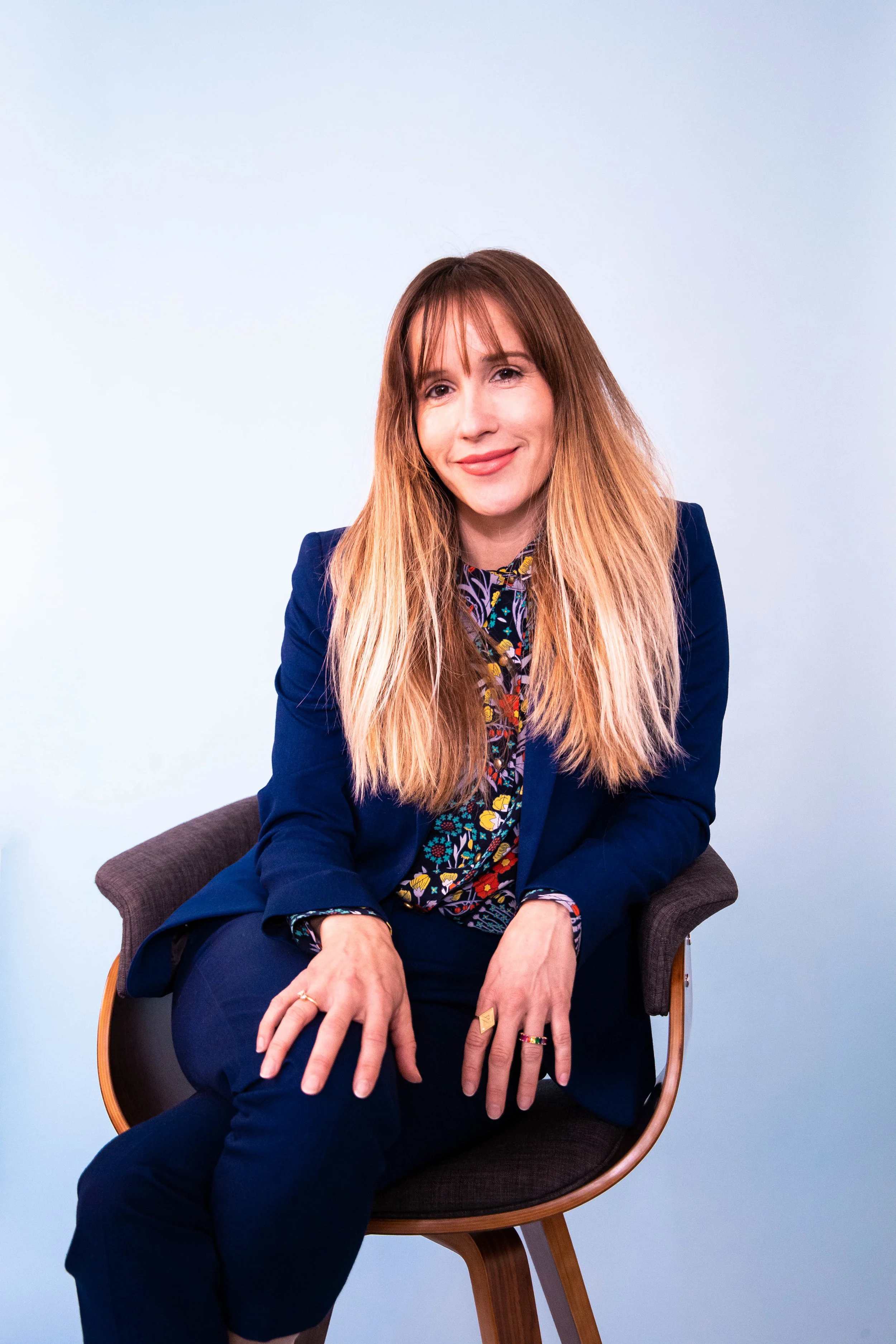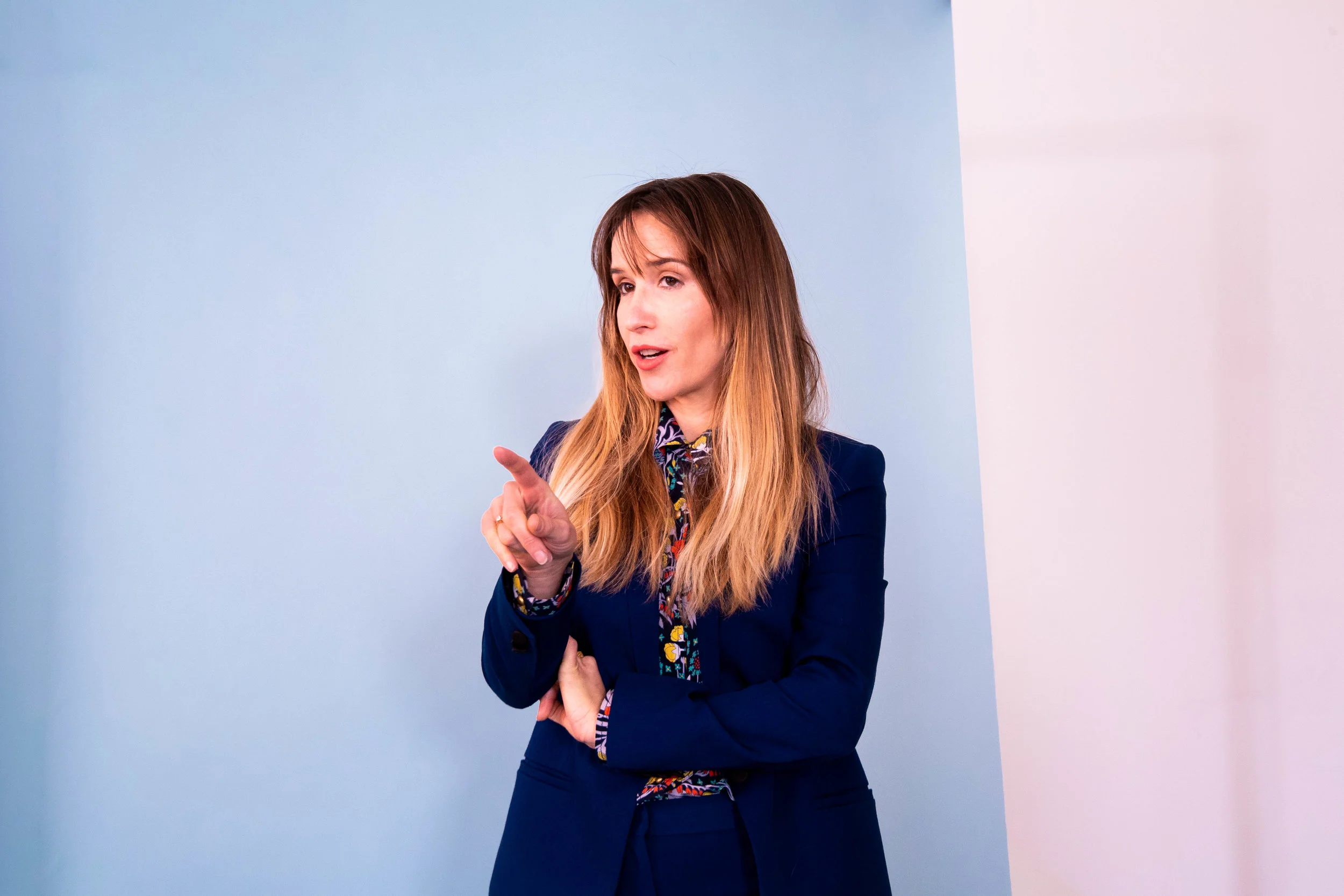Meredith Danluck
by Corrine Ciani
Meredith Danluck isn’t interested in making indie movies anymore. And while the writer-director may come from the art-world of experimental films and feature documentaries, she has other plans in mind.
When looking at her work prior to her latest and first feature film, State like Sleep, her career embodies as a full-fledged artist - work that has exhibited internationally at institutions such as MoMA, Liverpool Biennial, Reina Sofia Museum, and films that have exhibited at festivals like Tribeca, SXSW, and Sundance to name a few. She showcased North of South, West of East - an ambitious four-screen installation, which required Sundance to build a custom theater to simultaneously play the four feature-length films to one soundtrack around an audience arranged in swivel seating, ultimately giving them the experience of creating their own narrative.
After cultivating an incredibly enticing way to screen a film, or in this case, four films in one sitting, Danluck felt well-equipped to take on State Like Sleep. The psychological thriller follows the story of a widow, Katherine, (Katherine Waterston), searching for answers on her husbands mysterious death while simultaneously having to deal with a family health crisis. The film came to Danluck after thinking about a phone call she received in the middle of the night from her mother, who had been hospitalized in Brussels. As Danluck went to Brussels to care for her, ghosts of past relationships appeared, being that she lived there prior. It was during this time she was in touch with Ben Foster, who played Cass in North of South, West of East, who she credits to providing her with the words she needed to start the writing process of State like Sleep. “He just said to me if you want to make a movie, the best movies always come from real experiences. Just start writing things down. So I did,” she says.
One of the primary themes State like Sleep explores is grief, which makes for Danluck’s personal experiences to be translated through the main character of Katherine. She utilizes the mystery thriller genre as architectural support to share something much deeper, this being the fog caused by that emotion. “It's really translating that experience. I don't think in general in films you see those kind of complex female characters. We see female characters playing masculine roles, kind of adopting masculine archetypes, as it is the kind of trend you know, proving women can do everything men can do,” Danluck explains. “Sure, but also women have their own kind of strength and weaknesses in their own stories. Our own ways of encountering the world.”
While we speak over coffee she’s immediately charming, funny, and gracious, which in no way shadows her undeniable confidence. A confidence that reveals this unwavering desire to reflect the real complexity of human emotions across a screen, a confidence that is essential as a writer and director in her industry of choice. We discuss her perspective as a female director and writer, which she believes that regardless man or women, pursuing a career in filmmaking is a hustle all in itself. She mentions the positive direction film is headed, yet is more alarmed by the numbers of it all. “Where I go next, what kind of opportunities I will be given, how my film has been reviewed by mostly male critics, that's the challenge,” Danluck says. She shares with me the daunting number of male critics versus female, a study from the Annenberg Center she references from memory. The study reports that there is a gender ratio of 3.7 male reviewers to every 1 female. I did some more research. The “Critic’s Choice II” reveals that white critics took up 83.2 percent of reviews, whereas reviews from critics of underrepresented racial/ethnic backgrounds made up 16.8 percent.
Although Danluck shares she's had an extraordinary positivity experience in her professional career, State like Sleep proves as a challenge. “We are all accustomed to the white male narrative. You read a book and you assume the narrator is from the white male perspective. When we throw that off kilter, or we don't have a female protagonist that's services the idea of a woman - beautiful, sexy, long hair, on offer for the female archetype - then it really rustles the feathers. I think that those are things that I’ve felt personally.”
I ask if she's optimistic about what’s to come for women in film. “Yeah, you know why? Because we're not going anywhere,” she says with a smile. “Just because I get a bad review, I'm not going to stop making films. You cannot fucking tear me down. I'm going to keep making films and I'm going to keep making complex characters and I'm going to be making complex masculine characters too. That's the thing, I want to play within the big Hollywood archetypes, in the big language of Hollywood and twist it from the inside out,” she tells me, with excitement. “I am not content making a little tiny shaky handheld indie movie about a very small experience. I want to shoot Mission Impossible, I want to make James Bond and I want to fucking turn it upside down.”
Photos by Jared Hassim





